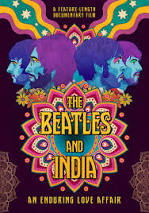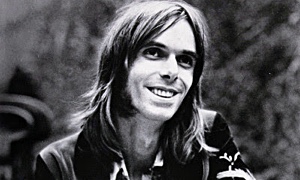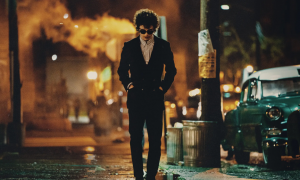Home » Jazz Articles » Film Review » The Beatles And India
The Beatles And India
 The Beatles
The Beatles The Beatles And India
Renoir Pictures/MVD
2022
The Beatles And India is not an authorized piece of film approved for release thru the current Apple organization, but perhaps it ought to be. This feature-length documentary collects in one place the various story lines arising around the iconic British band's abiding interest in all things Indian over the years, focusing on the late '60s. More importantly, this multiple-film-festival selection adds to and clarifies the existing information available concerning all the colorful personages involved as well as the various activities undertaken during this time. Integrated with the interview footage, the voice-overs describing the visuals in process conjure a 'you are there' sensation.
Presented here so quietly but forthrightly, the sequence of events gives the lie to the somewhat negative general impression(s) that has circulated since this period in

The Beatles
band / ensemble / orchestra
George Harrison
guitar1943 - 2001
It's worth noting in this respect that, even by their admittedly short-term collective interest, the Beatles themselves made a significant impact on the Indian nation in both music and culture. Somewhat mundane tales of less-than-idyllic experiences in Rishikesh, such as

Ringo Starr
drumsb.1940

John Lennon
guitar and vocals1940 - 1980
Director Ajoy Bose and producer Reynold D'Silva are also sufficiently (and wisely) conscientious to research and preserve for posterity all four bandmates' latter-day reflections on their experiences. All are generally positive, no less so the recollections ascribed to

Paul McCartney
bass, electricb.1942
The filmmakers clearly wanted to paint a broad and nuanced picture rather than a narrow and oversimplified one. So, in terms of the famous quartet's self-professed spiritual quest, the death of their manager Brian Epstein, during the foursome's attendance at the Maharishi's seminar in Bangor, Wales in late August 1967, appears in just the proper perspective. Likewise, while the absence of any of the Beatles' music might seem an egregious omission, it's more reasonable to assume such inclusions might seem (sound) contrived, or worse, distract from due attention for the filmed content in The Beatles And India.
Revelations abound, large and small, during the course of this 90 minutes plus. Of course, there's pure trivia in the form of Ringo calling to find a string for George's sitar during the 1965 recording of "Norwegian Wood' on Rubber Soul (Parlaphone, 1965). Yet, there's also the telling fact (?) that Harrison's mother often listened to Indian music during her pregnancy; a bit of information never widely circulated about the youngest and now deceased Beatle that rightly raises the question of whether his immersion into the music was subliminal exposure prior to birth.
Appropriately too, there are multiple mentions of

Ravi Shankar
sitar1920 - 2012
Rightfully referencing the many compositions that would show up on The Beatles (Apple, 1968), this film's final minutes unveil a fascinating narrative concerning the stimulation of the Beatles' creative juices while on their approximately month-long getaway in India. In contrast, non-sequiturs that arise in the chronology shortly thereafter, mainly surrounding skepticism about the Maharishi and his meditation practices, seem a bit fatuous, at least on the surface. That is, at least until the recounting of certain activities at the ashram as a means to the end of the holy man's own enrichment.
More scurrilous notions are perhaps inevitable in that space between believers and non-believers (see Lennon's "Sexy Sadie"), but with virtually no editorializing on the part of Bose and D'Silva—the DVD extras are markedly slight—they allow the events to speak for themselves. It's difficult if not impossible not to complete a viewing of The Beatles And India without gaining more than a little insight about this heretofore much-misunderstood phase of the groundbreaking group's history. And it's not just the story itself, but how it's told on film, that make it worth watching more than once.
Tags
Film Review
The Beatles
Doug Collette
Renoir Pictures/MVD
George Harrison
Ringo Starr
John Lennon
Paul McCartney
Ravi Shankar
Comments
PREVIOUS / NEXT
Support All About Jazz
 All About Jazz has been a pillar of jazz since 1995, championing it as an art form and, more importantly, supporting the musicians who make it. Our enduring commitment has made "AAJ" one of the most culturally important websites of its kind, read by hundreds of thousands of fans, musicians and industry figures every month.
All About Jazz has been a pillar of jazz since 1995, championing it as an art form and, more importantly, supporting the musicians who make it. Our enduring commitment has made "AAJ" one of the most culturally important websites of its kind, read by hundreds of thousands of fans, musicians and industry figures every month.





 Buy Now
Buy Now























